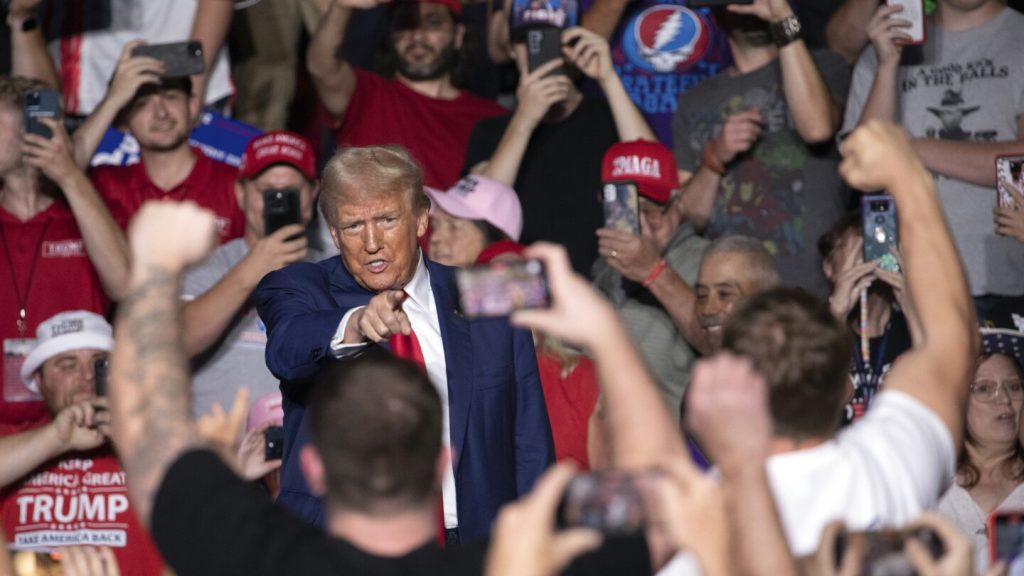Former President Donald Trump made baseless claims this week about the Uniformed and Overseas Citizens Absentee Voting Act (UOCAVA), falsely accusing Democrats of using the law to cheat in the upcoming elections. Trump alleged that Democrats could email ballots overseas without citizenship verification, suggesting foreign interference in future elections. This accusation is part of a pattern of misinformation spread by Trump and Republicans about voter fraud and election security since the 2020 race.
Experts believe that these false claims are aimed at undermining trust in the U.S. election system, potentially setting the stage for challenging election results if Trump does not win. Michelle Ciulla Lipkin, executive director of the National Association for Media Literacy Education, emphasized the importance of critically evaluating information about elections and relying on election officials for accurate information. Despite Trump’s claims, local election officials verify the identity and eligibility of overseas voters who register to vote absentee, following strict protocols to prevent fraud and ensure only eligible voters participate.
According to Scott Wiedmann, director of the Federal Voting Assistance Program, state and local election offices are responsible for verifying the eligibility of voters and administering the election process, including sending and receiving absentee ballots. Eligible voters living abroad receive a blank absentee ballot before each election and can choose how they want to receive it, including via email. Approximately 4.4 million U.S. citizens were living abroad in 2022, with nearly 95,000 votes cast during the 2022 general election by overseas citizens. The program allowing overseas citizens to vote has been in place for over 25 years without controversy.
David Becker, founder of The Center for Election Innovation and Research, noted that Trump’s recent false claims about UOCAVA are unprecedented, as both Republican and Democratic administrations have supported the program for years. Pamela Smith, president and CEO of Verified Voting, emphasized the importance of enabling overseas voters to participate in elections. While there have been isolated instances of noncitizen voting in the U.S., states have mechanisms to prevent it, and cases are rare due to the risks involved. False claims like Trump’s contribute to fears about voter fraud and illegal immigration, exploiting public distrust of the media and confusion about election laws.
Kathleen Carley, a misinformation expert and researcher, highlighted how false claims about UOCAVA could be used to support conspiracy theories about election fraud. Trump’s allegations contribute to a narrative of Democrats stealing elections, building on existing fears and distrust in the electoral process. Despite these baseless accusations, the process for overseas citizens to vote in U.S. elections remains secure and follows established protocols to verify citizenship and eligibility. As the 2024 election approaches, the focus on election security and integrity is likely to continue amid ongoing misinformation and disinformation campaigns.















